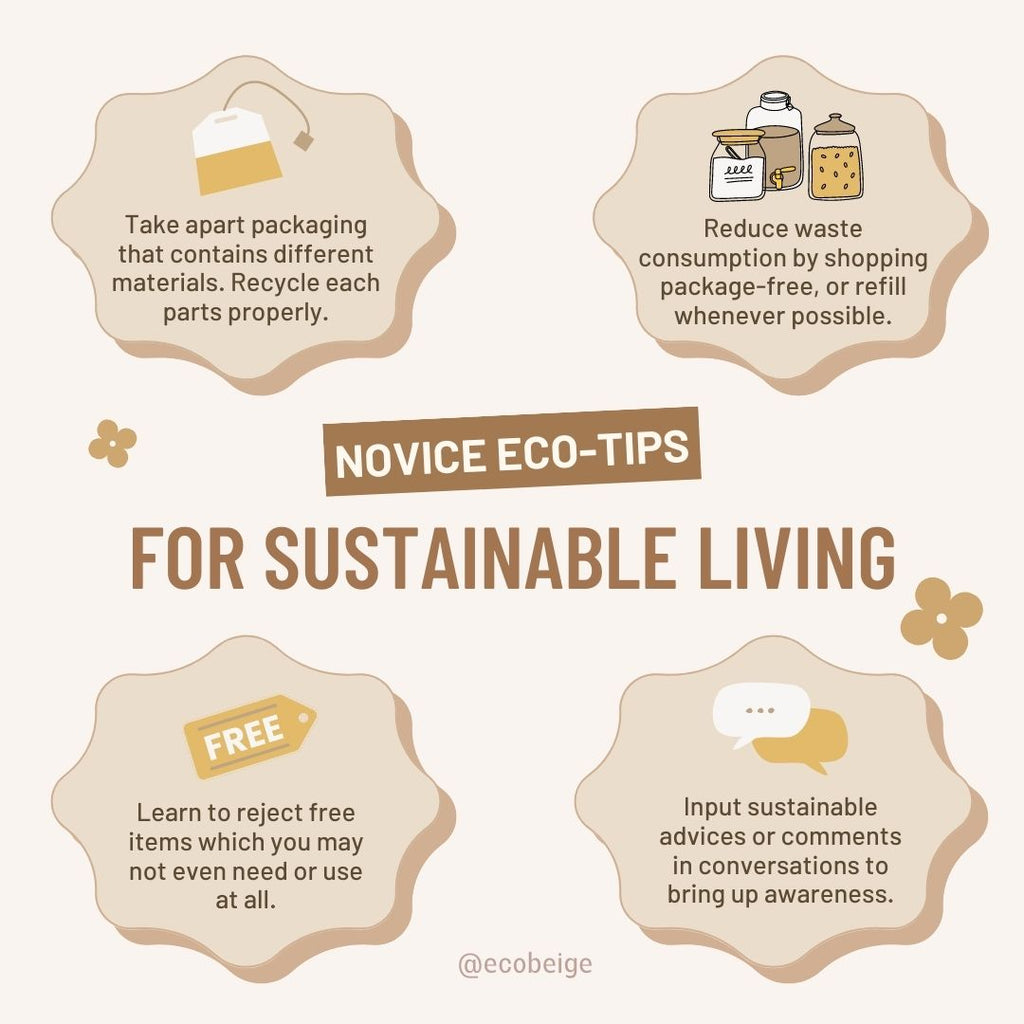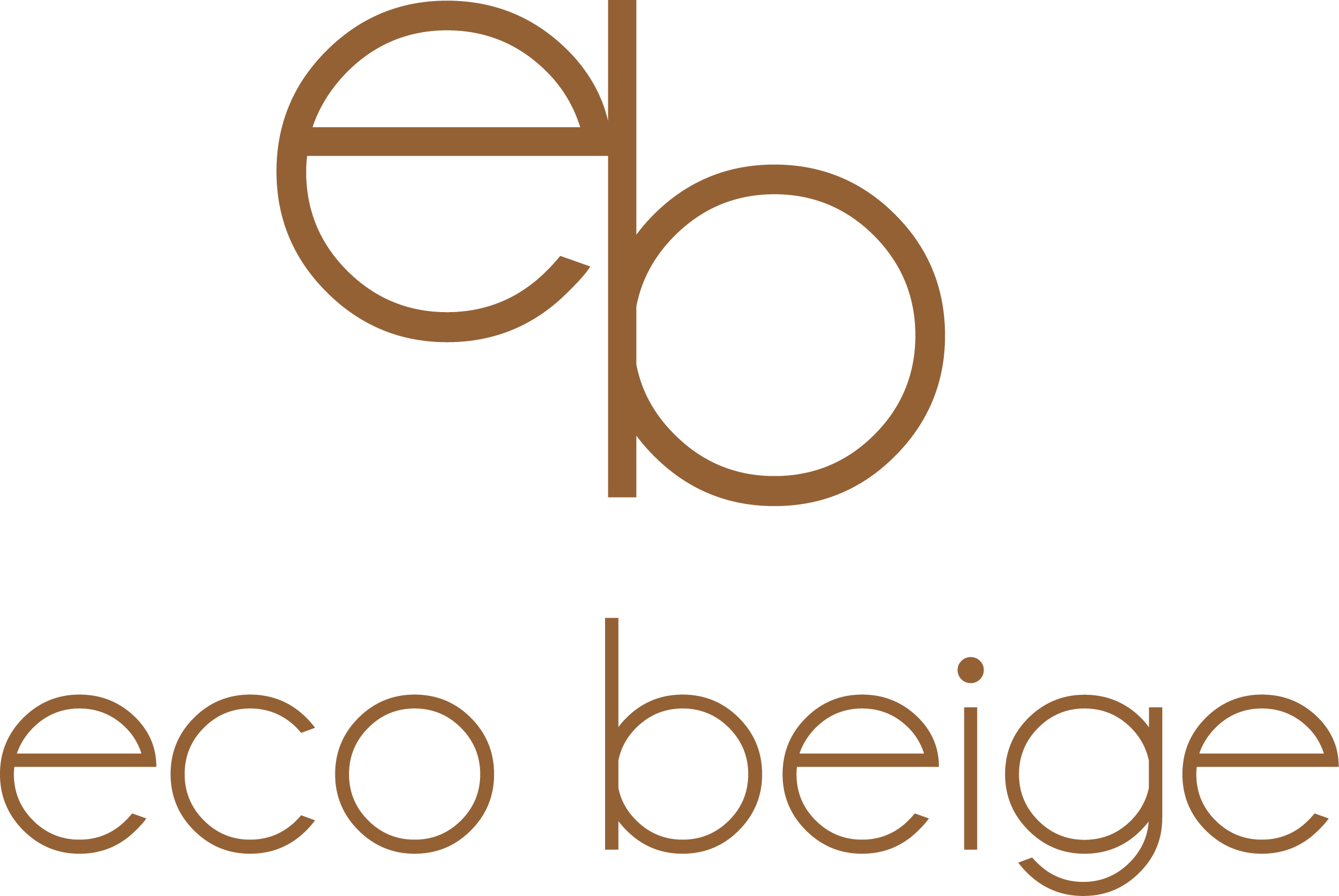Eco Tips other than “Use what you already have” and “Bring your own reusables”

If you have taken a step towards an eco-friendly journey, you’ve definitely heard of the term “Use what you already have.” or “Bring your own reusables.” These are great beginner tips to start off your eco-journey. Since you are reading this blog, you may already be asking yourself what else is there that I could do to help our planet?
There is a lot we can do, but let's keep it simple for now. Here are a few novice level eco-tips you can try working on while tackling this never ending journey.

1. Take Apart Packaging That Contains Different Materials.
Some food or product packagings come with mixed contents of materials. E.g. teabags, boxes with plastic windows, and plastic or metal containers with paper labels. The truth is, these can not be recycled as it is, and if consumers don’t take time to sort this out, these packaging will most likely end up in the landfill.
If you can identify which part of a packaging is plastic, paper, or metal, do your best to separate each material and recycle where they belong. For any parts that can not be recycled, it is best to throw them in the trash bin to avoid recycle facilities contamination.

2. Reduce Waste Consumption By Shopping Package-free, or Refill Whenever Possible.
By shopping packageless products, it reduces the chance of sorting out unrecyclable packages. By shopping refill, it also reduces significant amounts of containers, bags, and other materials that don’t serve a purpose of the product itself.
While refill shops may not be accessible for everywhere, planning a trip to a refill shop once every couple months to stock up on certain things would still make a positive impact!

3. Learn To Reject Free Items Which You May Not Even Need or Use.
Free things are always tempting, we totally get it. But when it comes to grabbing things you will just chuck on the side once you get home, that becomes waste.
A lot of times we will be given free items or products either from friends, families, or store promotions. It is important to make the judgment for whether these free items will be useful for you or not. If you know it’s something you don’t need, learn to say no in a polite way and explain why. Explaining yourself may even spark up the conversation of awareness, which leads to our next tip!

4. Input Sustainable Advice or Comments In Conversations to Bring Up Awareness.
It is often hard to start a sustainability conversation especially with a group that doesn’t share the same passion. But don’t let this stop you from throwing educational information into conversations. While everyone’s opinion may be different when it comes to the issue of sustainability, we find that stating facts that aren’t pointed directly at anyone can help with the topic.
Let’s use an example! If you are being given a single-use bag from a store, simply say “Thank you, but I don’t need it. I brought my own bag to reduce single-use waste”. Adding the last comment is not only a reason but also a fact and message you can deliver to show awareness. Give it a try next time, this type of sustainable comments can be used across all types of conversation!

We hope these 4 not-so-generic eco-tips were helpful with your great sustainable journey ahead. Have you encountered any relatable experiences or stories you’d like to share? Make sure to leave it at the comment below!
Remember, each conscious step can have a big impact on our earth! Be proud of the little changes you make.
See you on our eco-blog next time!


Leave a comment